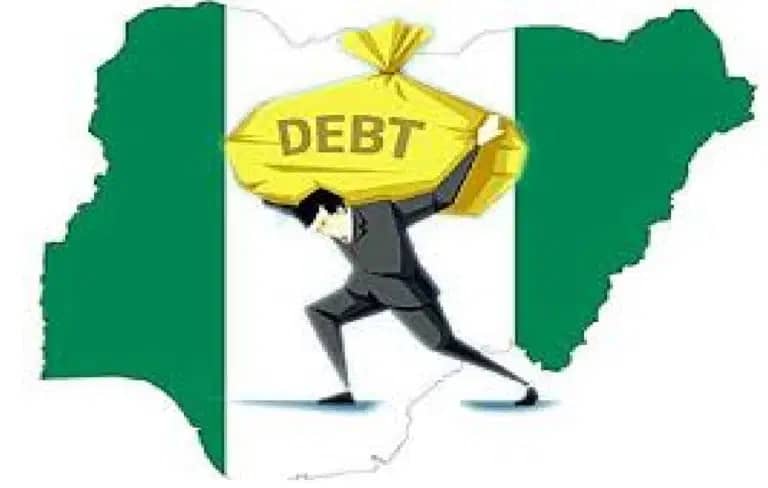Nigeria’s public debt is set to hit N130 trillion by the end of this year, raising alarms about the country’s debt-to-GDP ratio.
A recent Afrinvest report, titled “Bank Recapitalisation, Catalyst for a $1tn Economy,” reveals that Nigeria’s public debt, which includes both external and domestic obligations, reached N121.67 trillion in Q1 2024. This figure marks a significant rise from N97.34 trillion in Q4 2023, representing a quarter-on-quarter increase of 24.99 percent.
The report forecasts that by year-end 2024, Nigeria’s fiscal deficit, total public debt, debt-to-GDP ratio, and debt-servicing-to-revenue ratio will surpass N13 trillion, N130 trillion, 55 percent, and 60 percent, respectively.
As of early 2024, the breakdown of Nigeria’s public debt is N77.5 trillion in domestic debt (63.6 percent) and N44.2 trillion in external debt (36.4 percent). Domestic debt includes N44.8 trillion in Federal Government bonds, N20.3 trillion in Treasury bills, and N12.4 trillion in other domestic obligations. External debt consists of N14.3 trillion from multilateral creditors, N10.9 trillion from bilateral creditors, and N19.0 trillion from commercial creditors.
Afrinvest’s report critiques the 2024 budget for its “overly optimistic” revenue projections, which could lead to further budget shortfalls. The expected 43.9 percent revenue share from oil and minerals is deemed unrealistic.
For 2023, the budget underperformed, with actual revenue exceeding the budgeted amount by 7.6 percent to reach N11.9 trillion. Meanwhile, total expenditure rose by 31.8 percent to N18.8 trillion, increasing the deficit to N46.9 trillion.
The report highlights that the Federal Government’s share of the total public debt stock grew by 44.6 percent year-on-year to N487.3 trillion, making up 89.7 percent of the total debt by year-end.
Afrinvest also warns that extensive borrowing by the Federal Government may affect bank deposits, as higher yields on risk-free securities could be more attractive than bank deposit interest rates.
This situation could lead to increased asset deterioration risks for banks due to consumption-oriented budget patterns.
On a positive note, the report acknowledges the Central Bank of Nigeria’s efforts to regulate Bureau De Change operators, uphold a unified forex market policy, and conduct periodic forex sales to approved BDCs at discounted rates. However, it cautions that persistent issues stem from insufficient forex reserves.
Afrinvest suggests exploring alternative forex sources such as bilateral loans, resource-tied loans, debt-for-nature swaps, and asset concessions for immediate relief.
They stress that revitalizing traditional forex inflow sources like oil production, remittances, and foreign investments, supported by effective fiscal policies, is crucial for sustainable forex market stability.


